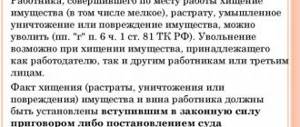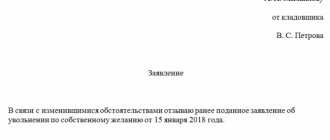The adoption process is carried out in a courtroom by authorized persons on the basis of the relevant law.
This procedure represents a certain form of family education of a child who was previously deprived of compulsory parental care, with the establishment of customary personal and property relationships between the parties.
According to current legislation, registration of such rights is possible only in relation to those children who have not yet reached the age of eighteen. Adoption is carried out by the court only upon the application of persons who express a desire to take in an orphan child. This article reveals the main nuances of judicial practice on adoption.
Dear readers! To solve your problem right now, get a free consultation
— contact the duty lawyer in the online chat on the right or call: +7 Moscow and region.
+7 St. Petersburg and region. 8 Other regions of the Russian Federation You will not need to waste your time and nerves
- an experienced lawyer will take care of all your problems!
The adoption procedure in accordance with the laws of the Russian Federation
The process of adoption, as well as its abolition, is observed throughout the state due to the existence of a certain article numbered 271, which is part of the Civil Procedure Code.
It greatly simplifies the procedure for adoption of children by a stepfather or stepmother.
Adoption is a so-called aspect of family law, a legal act that allows you to establish a certain relationship between the adoptive parent and the child. According to the existing Family Code, the adoption of children is allowed only if certain nuances are observed, such as origin, as well as belonging to a certain religion and culture.
These also include: the ability to ensure continuity in education and subsequent upbringing, as well as the ability to give children full physical, psychological, spiritual and moral development.
Typically, all adoption cases are considered in a special procedure, in accordance with the rules of the Civil Procedure Code. Also, the process of placing a child in a new family is subject to mandatory registration as an act of civil status.
To adopt a child, parental consent is required. If the latter have not yet reached the age of sixteen, then the consent of their parents is required.
One important point regarding adoption is the following: if the child they want to adopt has already reached the age of ten, then it is necessary to take into account his opinion regarding the further process.
It is important to note that if he is adopted by only one of the spouses, then it is important to find out the opinion and consent of the second spouse. But as for the immediate cancellation of the formalization of these family relations between the two parties, it must be carried out exclusively at a court hearing.
The process of accepting a child into a family, as well as its cancellation, by foreigners and stateless persons is carried out in accordance with the laws and their provisions adopted by the given state.
A person expressing a desire to become a parent must have Russian citizenship. If a person does not have one, then he must have a permanent place of residence. When carrying out adoption, the rules and requirements of Articles 124 - 126, Article 127 (in addition to subparagraph 7 of paragraph 1), Articles 128 and 129, Article 130 (except for the fifth paragraph), Articles 131 - 133 of the current code, which contains certain provisions of the international treaty on interstate cooperation in the field of adoption of orphans.
If a citizen of another state is in an official union with a person who has Russian citizenship and wants to go through the adoption process, then he must obtain the appropriate consent from the official representative of the child and the authorized body of the state of which the child himself is a citizen.
This requirement is specified in Federal Law. Protection of the interests of children who are citizens of a given state and were adopted by foreigners and stateless persons is carried out within the limits established by international law.
Before starting the adoption process, it is important to weigh all the positive and negative aspects so that in the future you do not have to go to court to cancel a previously completed action to obtain certain obligations regarding the upbringing of someone else’s child. This is a humane action in relation to the feelings of the baby, who, having gotten used to a new family, may lose it again.
The Supreme Court summarized the practice of international adoption
In order for foreigners to adopt Russian children, they need court approval. And in 2021, regional courts made decisions on 203 cases of international adoption. This is 20% less than in 2018 (then there were 256 cases). And compared to 2021, when the courts considered 433 cases, in 2021 their number has already decreased by 53.1%, the Supreme Court notes. “Thus, there continues to be a steady trend toward an annual decrease in the number of international adoption cases,” the highest court emphasizes. This is due to the fact that in 2012 the “Dima Yakovlev Law” was adopted, limiting adoption abroad.
Most often in 2021, Russian children were adopted by Italian citizens – almost 65% of cases. Most children are adopted from the Kemerovo region. This is confirmed by the fact that it was the Kemerovo Regional Court that made the most decisions (37) in this category of cases. Second place is shared by the Perm Regional and Leningrad Regional Courts, which each considered 16 such cases.
Task: leave the child in Russia
In its review, the Supreme Court recalls the norm of the Family Code (clause 4 of Article 124), according to which foreign citizens and stateless persons can adopt Russian children only if they cannot be placed in the families of Russian citizens. And the courts, when considering each application of foreign applicants, examined whether Russian families were offered to adopt the child. When necessary, the child's relatives were questioned as witnesses.
Codification Council proposes to simplify adoption
In one of the cases, the opinion of the children’s grandmother played a role. In court, she stated that she would like, but cannot, take her grandchildren into the family and raise them, but does not object to the adoption of children by foreign citizens. In her opinion, this will be in the interests of children whose parents lead an antisocial lifestyle.
In another case, the aunt of a nine-year-old boy expressed readiness and desire to take the child into her custody. But in the end, she did not bother preparing the necessary documents. The guardianship authorities concluded that she was not interested in the boy. Taking into account these circumstances, the court decided that the adoption of a child by Italian citizens (taking into account their age and state of health) is the only possible option for placing a child in a family.
In all cases, the courts studied in detail information about how many times Russian citizens were offered to adopt a child and why they refused. Difficulties with placement in Russian families most often occur among children with disabilities. In one case reviewed, siblings were offered adoption to 76 families, but all declined. As a result, they were allowed to be taken to Italy. This was largely facilitated by the fact that the potential guardians agreed to take two children.
The child's opinion must be taken into account
Complying with the provisions of Art. 57 of the Family Code and the Convention on the Rights of the Child, courts find out the opinion of children who have reached the age of 10 years on the issue of their adoption.
The Supreme Court found out who the father of the “test tube baby” is
For example, when considering one of the cases of international adoption, a girl born in 2009, in the presence of the social teacher of the orphanage, explained that she understood that the applicants wanted to adopt her. The girl said that she liked these people and she agreed to go with them to Italy and change her last name. The court gave her this opportunity.
In another case from the review, the boy stated that he likes to communicate with potential adoptive parents and play with them, that he considers them kind, cheerful and would like to call them mom and dad, live in their family, and would like them to be proud of him. The child explained that he had been studying Italian with a teacher for several months and could already construct simple dialogues. Thanks to regular communication via Skype, he learned a lot about these people, knows what they do, their hobbies, the names of their pets, and dreams of going with their adoptive parents to Italy. Under these circumstances, the court approved the adoption.
If the courts came to the conclusion that children under 10 years of age, due to their development, can formulate their views on issues of their adoption, then their opinion was also found out at the court hearing.
Verification of adoptive parents
A generalization of judicial practice showed that the courts in all cases checked whether the age of the adoptee and his state of health corresponded to the recommendations given to the adoptive parents in the socio-psychological report or in the certificate of ability to be adoptive parents. In many cases, applicants had to additionally prove that they could take a particular child. Additional conclusions to the socio-psychological report helped.
In such cases, courts also study the conclusion of a psychologist about the duration and nature of communication between the applicants and the adopted child. Prospective parents usually spend several days with the child before making a final decision about adoption.
The Supreme Court decided who to give the child after a divorce
In one of the cases included in the review, the applicants met with children five times, their communication lasted the whole day: they played together, colored pictures, learned foreign words, went with the children to the zoo and circus. During the second visit, adoptive parents and children interacted for five days, every day, all day long. These days, adoptive parents and children went to the cinema and visited an entertainment children's center. After the adoptive parents' first visit, their communication with the children continued through telephone, email and video calls. In court, the applicants explained: in order to make a decision on adoption, the time spent was enough for them, because they were able to understand the character of each of the children, their characteristics, habits, and interests. The court took this into account and approved the adoption.
In cases where the applicants had already adopted children from Russia, the courts examined in detail whether the adoptive parents were successfully coping with their parental responsibilities. The issue of the language barrier and how parents and the child are going to overcome it are also always studied in detail.
In total, in 2021, Russian courts granted 202 out of 203 considered applications for international adoption. In one case, the court refused to consider an adoption application because it was filed by US citizens (due to the “Dima Yakovlev Law”).
Review of the practice of considering in 2021 by regional and equal courts cases of adoption of children by foreign citizens or stateless persons, as well as citizens of the Russian Federation permanently residing outside the territory of the Russian Federation.
- Pravo.ru
Judicial statistics on adopted children
The Supreme Court recently released startling statistics on adoption cases by foreigners, stateless people, and Russians who temporarily reside abroad.
The adoption of disadvantaged children by foreigners has decreased almost threefold in a couple of years.
The final results of the generalization show that the downward trend in the number of cases in this category remained the same as in previous years.
Since 2011, the statistics of adoptions by foreigners has been decreasing with each new year, which is extremely regrettable. But as for the similar process that is taking place with the participation of Russians, the statistics of adoptions by them is still quite high.
But as for adoption by foreigners, it is very important to take into account the opinion of the child himself. According to the provisions of Article 57 of the Family Code, which established the right of every child to express his personal opinion when resolving many issues, new parents are obliged to listen to him on all issues related to ensuring normal conditions for his life. We should also not forget that in order to adopt a child who has reached ten years of age, his consent is important.
Adopting a child who is a citizen of the Russian Federation is possible only if all requirements have been met and permission for this process has been previously obtained. Before starting, it is important to study all the provisions of the current legislation.








